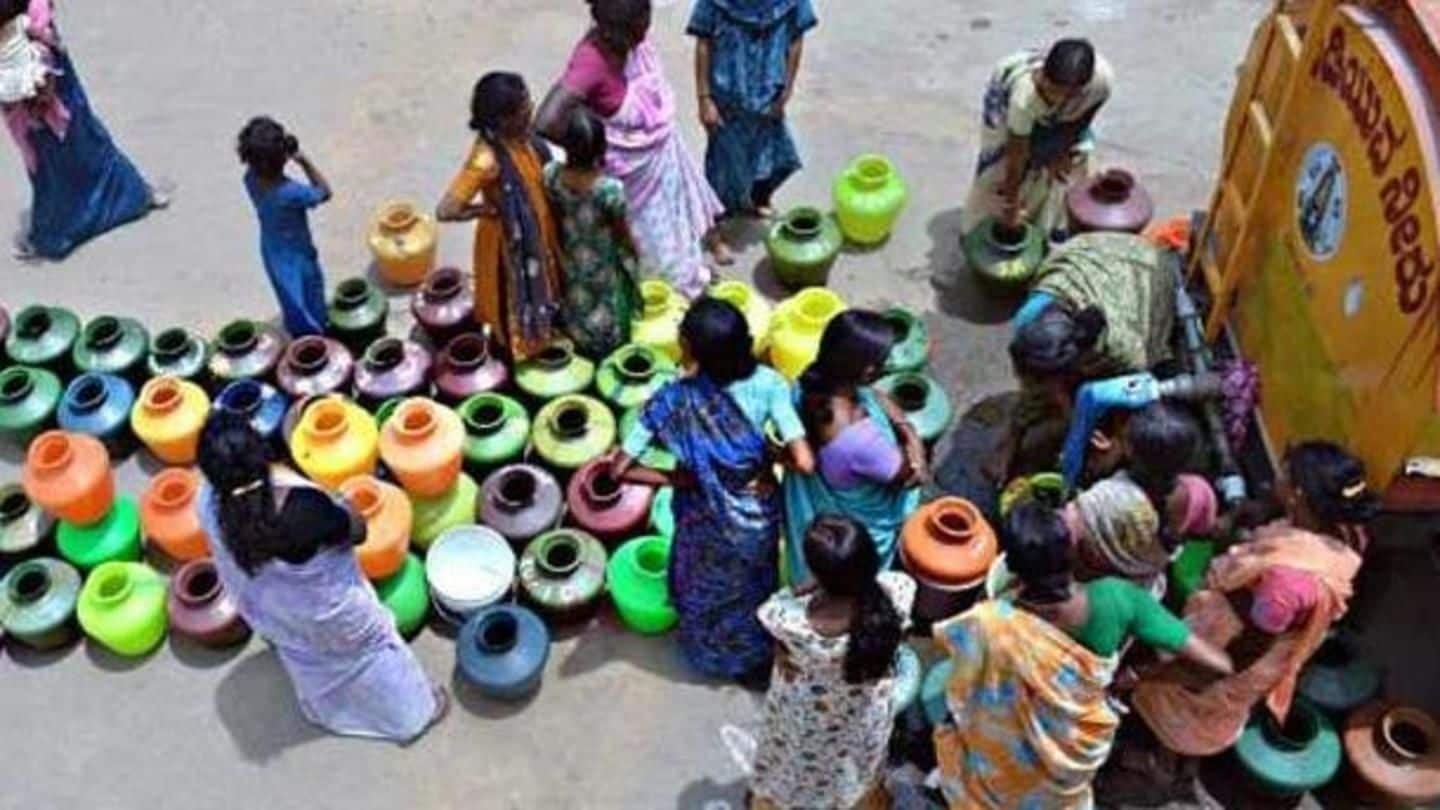
Bengaluru among 10 metros drying up fastest, severe crisis looming
What's the story
That Bengaluru is facing water crisis is nothing new. But what's startling is that it is fast approaching 'Day Zero,' when taps start running dry. A report in Down To Earth magazine puts it among the ten metros drying up the fastest. Earlier, BBC had termed the city as the next Cape Town, South Africa's richest city that will face severe water crisis soon.
Grim picture
Unplanned urbanization to blame; water body depletion by 79%
The city earlier had multiple water sources: 200 lakes, plentiful groundwater, and supplies from reservoirs and tanks in Arkavathi basin. But now, the water bodies' count has plunged by a whopping 79%, owing to fast growing fangs of urbanization. In 30 years, the extraction wells have swelled up to 0.45 million and the water table has shrunk by 66m in just two decades.
Future crisis?
Residents get less than half the ideal amount of water
Residents get 65 litres per capita per day (lpcd) on average, against the ideal 150 lpcd. Karnataka used to get 270 thousand million cubic feet (tmc ft) water through Cauvery, of which 17.64 tmc ft was used annually for Bengaluru's drinking purposes. 4.75 tmc ft has been added to the share now but the city's water supply still falls short by 6 tmcft annually.
Will it work?
Don't worry about it, we have solution in place: BWSSB
BWSSB meanwhile had asked citizens not to bother about the BBC report. "Solutions are in supply management and demand management, and citizens need not have to worry about this BBC report," it said. Further, it said that a tie-up with the Japan International Cooperation Agency for a Rs. 5,500 crore loan is on for increasing Cauvery water from "1,400 mld to 2,175 mld".
Information
Water crisis list: Which other metros are giving Bengaluru company?
The other metros in the top ten crisis list are Beijing (China), Mexico City (Mexico), Sanaa (Yemen), Nairobi (Kenya), Istanbul (Turkey), Sao Paulo (Brazil), Karachi, Buenos Aires (Argentina) and Kabul (Afghanistan). The report said 36% of the cities globally will face water crisis by 2050.